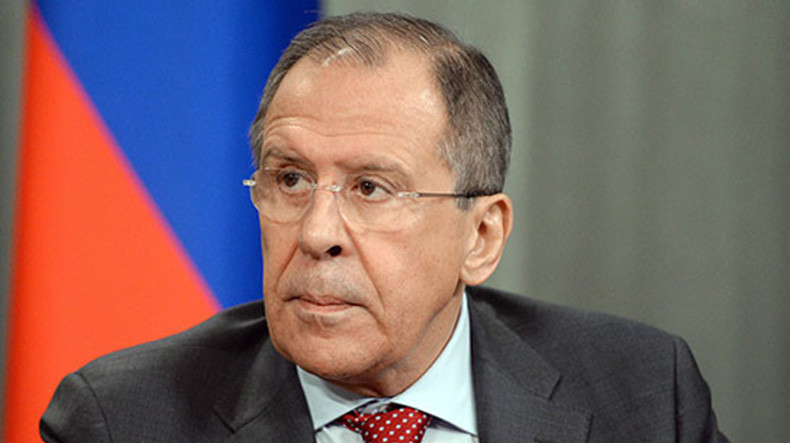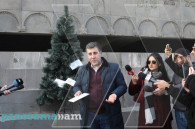
Karabakh conflict settlement among Russia’s priorities, says FM Lavrov
The settlement of the Nagorno-Karabakh conflict is among Russia’s priorities in the post-Soviet territories, Foreign Minister Sergey Lavrov said in an interview with Armenian media.
FM Lavrov stressed that as an OSCE Minsk Group Co-Chair country, Russia is not only taking collective efforts with the other Co-Chairs but also trying to come up with its own initiatives in line with the decisions on the Nagorno-Karabakh conflict given Russia’s “special relations with Armenia and Azerbaijan”.
The top Russian official stressed the work done towards the conflict settlement from 2009 to 2011 was truly very intensive, with the presidents of Russia, Armenia and Azerbaijan having met for ten times in the indicated period.
According to him, a regular meeting planned in Kazan allowed to expect serous outcomes, since the draft documents prepared by Russia with support from the US and French Co-Chairs supposedly took into account all the concerns of Yerevan and Baku.
He said that, however, additional questions and comments came forth during the Kazan summit. “We do not make a big tragedy out of it. The works will proceed. I am confident that much of what the so called “Kazan document” includes is still in demand like previously. This is evidenced by reactions from Yerevan and Baku to the contacts at the level of presidents, ministers and Co-Chairs, who have been regularly visiting the region – Yerevan, Baku and Stepanakert,” he noted.
FM Lavrov states the work done in this period was not in vain, adding that, however, some new ideas have emerged that are being advanced by the Co-Chairs during their meetings with the parties. He stressed the need to overcome the mistrust which still persists during the Karabakh talks and to stay focused on realistic and pragmatic ideas.
“They [the ideas] only need to be put on paper; although the parties conceptually agree with the need to do it, complications arise when everything starts to take the shape of specific formulations. I believe we’ll continue to consistently overcome them and achieve results,” he said.
Related news
Newsfeed
Videos






























